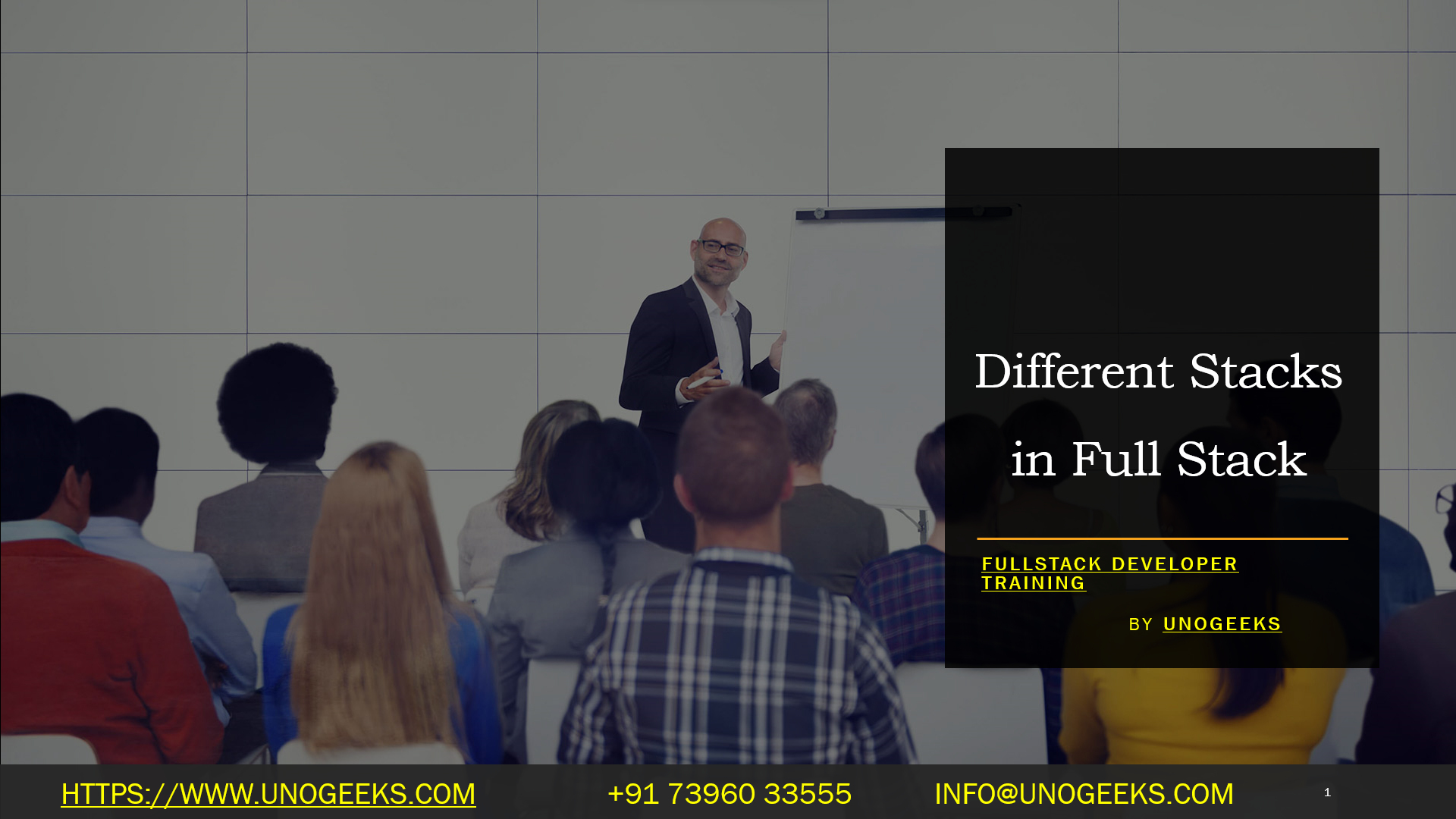Different Stacks in Full Stack
Different Stacks in Full Stack
In Full Stack development, a “stack” refers to a combination of technologies, frameworks, and tools used for both the front-end (client-side) and back-end (server-side) development of web applications. Different stacks exist to cater to various project requirements, developer preferences, and use cases. Here are some popular stacks used in Full Stack development:
- MEAN Stack:
- MongoDB (Database)
- Express.js (Back-End Framework)
- Angular (Front-End Framework)
- Node.js (Runtime Environment)
- MERN Stack:
- MongoDB (Database)
- Express.js (Back-End Framework)
- React (Front-End Library)
- Node.js (Runtime Environment)
- LAMP Stack:
- Linux (Operating System)
- Apache (Web Server)
- MySQL (Database)
- PHP (Back-End Language)
- LAMP Stack (Alternative):
- Linux (Operating System)
- Nginx (Web Server)
- MariaDB (Database)
- PHP (Back-End Language)
- Ruby on Rails Stack:
- Ruby (Back-End Language)
- Ruby on Rails (Back-End Framework)
- PostgreSQL (Database)
- Django Stack:
- Python (Back-End Language)
- Django (Back-End Framework)
- PostgreSQL (Database)
- Java Stack:
- Java (Back-End Language)
- Spring Framework (Back-End Framework)
- Hibernate (ORM)
- MySQL or PostgreSQL (Database)
- MEVN Stack:
- MongoDB (Database)
- Express.js (Back-End Framework)
- Vue.js (Front-End Framework)
- Node.js (Runtime Environment)
- Ruby on Sinatra Stack:
- Ruby (Back-End Language)
- Sinatra (Lightweight Back-End Framework)
- PostgreSQL (Database)
- Flask Stack:
- Python (Back-End Language)
- Flask (Micro Back-End Framework)
- SQLAlchemy (ORM)
- PostgreSQL (Database)
- ASP.NET Stack:
- C# (Back-End Language)
- ASP.NET (Back-End Framework)
- Entity Framework (ORM)
- SQL Server (Database)
- Serverless Stack:
- AWS Lambda or Azure Functions (Serverless Computing)
- API Gateway
- AWS DynamoDB or Azure Cosmos DB (NoSQL Database)
- Front-End of Choice (e.g., React, Angular, Vue.js)
Full Stack Developer Training Demo Day 1 Video:
Conclusion:
Unogeeks is the No.1 IT Training Institute for Full Stack Developer Training. Anyone Disagree? Please drop in a comment
You can check out our other latest blogs on Full Stack Developer Training here – Full Stack Developer Blogs
Please check out our Best In Class Full Stack Developer Training Details here – Full Stack Developer Training

———————————-
For Training inquiries:
Call/Whatsapp: +91 73960 33555
Mail us at: info@unogeeks.com
Our Website ➜ https://unogeeks.com
Follow us:
Instagram: https://www.instagram.com/unogeeks
Facebook:https://www.facebook.com/UnogeeksSoftwareTrainingInstitute
Twitter: https://twitter.com/unogeeks
